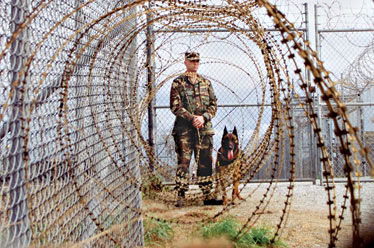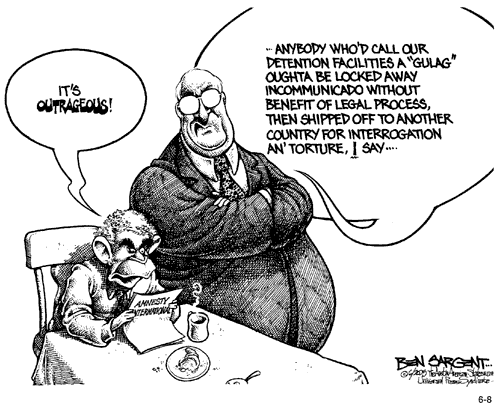Canadian security agencies use unacceptable intimidation tactics, aggressive behavior and threats of arrest against Canadian Muslims while investigating allegations of terrorism, according to a leading Muslim group.
The Canadian Council on American-Islamic Relations (CAIR-CAN) has said the Canadian Security Intelligence Service (CSIS) and Royal Canadian Mounted Police (RCMP) used intrusive tactics such as discouraging legal representation and threats of arrest under the Anti-Terrorism Act, to compel individuals to accept interviews.
Security officials also used to ask intrusive and inappropriate questions, give improper identification and solicit informants through intimidation, the Muslim group said in a statement, a copy of which was e-mailed to IslamOnline.net Wednesday, June 8.
“It’s safe to say that the overall consequence has been one of alienation, loss of trust in our security agencies and civil cynicism. The results are quite alarming,” said Riad Saloojee, the council’s executive director.
A survey conducted by the Muslim civil liberties group showed that Canadian Muslims were routinely singled out and harassed by the security agencies. Eight percent of respondents to the survey, which included around 467 people, mostly young Arab males, said they were “visited” by the RCMP or CSIS officials.
Nearly half of respondents said visits by security officials made them feel fearful, anxious and nervous, while about one-quarter said they felt harassed and discriminated against. “What we found was that people are very scared in the Muslim community, even the people who filled out the survey were concerned about their safety,” council spokeswoman Halima Mautbur told CBC News Online.
The survey also showed that the interrogators asked questions on how the interviewed is committed to Islam, how often a day does he pray and what does he think of the Iraq invasion-turned-occupation. “They suggested that having a commitment to your faith is dangerous in this post 9/11 world or that it could get you into trouble,” Mautbur said.
Islam Online, 9 June 2005

 British lawyer Clive Stafford Smith writes:
British lawyer Clive Stafford Smith writes:
 The Supreme Court rejected on Monday a request by Jose Padilla, a U.S. citizen held for three years as a suspected enemy combatant, for an immediate decision on his detention instead of waiting for a federal appeals court to rule. His attorneys asked the justices to decide whether President Bush has the power to seize U.S. citizens in civilian settings on American soil and subject them to indefinite military detention without criminal charges or a trial.
The Supreme Court rejected on Monday a request by Jose Padilla, a U.S. citizen held for three years as a suspected enemy combatant, for an immediate decision on his detention instead of waiting for a federal appeals court to rule. His attorneys asked the justices to decide whether President Bush has the power to seize U.S. citizens in civilian settings on American soil and subject them to indefinite military detention without criminal charges or a trial. A secret document obtained by Time magazine shows the pressure tactics used against a major al-Qaida suspect by the U.S. military at Guantanamo Bay, Cuba. The magazine said in an article set to hit stands Monday it obtained a secret 84-page interrogation log for Mohammed al Qahtani, believed by the U.S. government to have entered the country in August 2001, intending to participate in the Sept. 11, 2001, attacks.
A secret document obtained by Time magazine shows the pressure tactics used against a major al-Qaida suspect by the U.S. military at Guantanamo Bay, Cuba. The magazine said in an article set to hit stands Monday it obtained a secret 84-page interrogation log for Mohammed al Qahtani, believed by the U.S. government to have entered the country in August 2001, intending to participate in the Sept. 11, 2001, attacks.